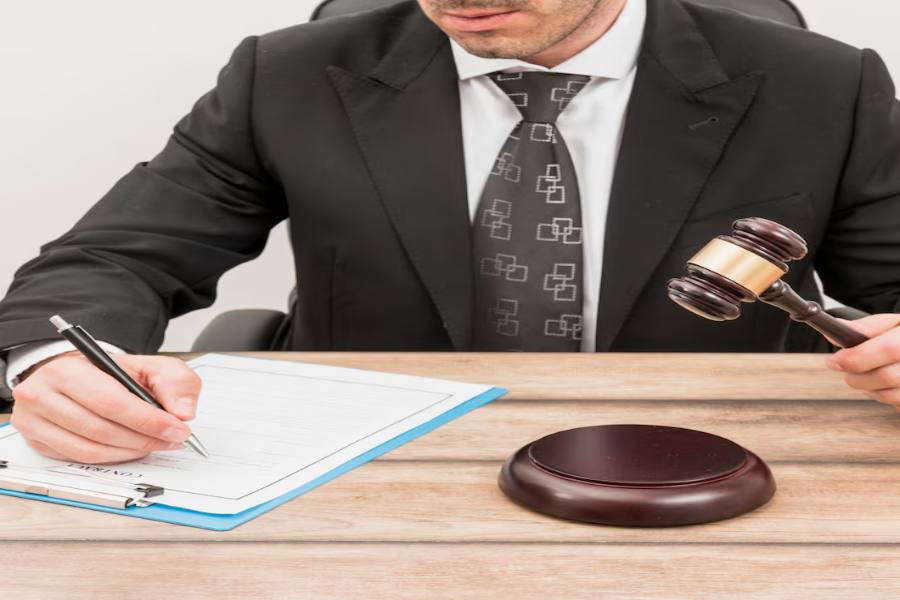The foundation of a successful claim often rests on the evidence presented. Evidence establishes the facts of the case and helps demonstrate liability and the extent of damages incurred.
Understanding the types of evidence and how to effectively gather and present it can be the difference between winning and losing in court. From eyewitness accounts to medical records, every piece plays a significant role in building a compelling case that appeals to judges and juries alike.
The Importance of Evidence in Legal Cases
The legal system operates on the principle that a party is presumed innocent until proven guilty. In personal injury claims, the burden lies on the plaintiff to prove that the defendant acted negligently or recklessly, causing the injury in question. Solid evidence substantiates claims and allows for a more persuasive narrative before a judge or jury. It showcases the necessary facts and conveys credibility and reliability that can significantly influence the outcome.
Witness testimony often serves as a powerful form of evidence. Eyewitnesses can offer firsthand accounts of the incident, lending credibility to the plaintiff’s narrative. Their observations can help clarify the sequence of events leading to the injury, which is crucial for establishing liability. While compelling, witness testimony can be challenged under cross-examination, making it important to select witnesses who can articulate their observations clearly. In situations where witness testimony may not be available, documentary evidence becomes critical.
Records such as police reports and medical documentation can provide concrete details of the incident and injuries sustained. The integration of these records into a legal case can help substantiate claims and build a strong argument for compensation. Thus, a diverse array of evidence strengthens the case and reinforces the plaintiff’s position in negotiations or court.
Strategies for Collecting and Preserving Evidence
Effectively gathering and preserving evidence is imperative for the success of an injury claim. The first step is actively collecting all relevant information at the scene of the incident. Photographs, videos, and eyewitness contact details should be secured as soon as possible. The effectiveness of evidence can diminish over time, making prompt collection significant. Maintaining the integrity of evidence is just as important as collecting it. Keeping items in their original condition until presented in court is crucial for physical evidence.
For documentary evidence, secure storage and careful handling ensure that the information remains credible and is not altered. Retaining copies of all communications and documentation related to the case further aids in presenting a comprehensive argument. Legal representatives can offer valuable assistance in evidence management. Whether you need Florida injury compensation lawyers, Tampa Bay ones, or lawyers somewhere else, local to you, they possess the expertise to gather and present evidence efficiently. Their understanding of legal standards ensures that all evidence presented meets the required criteria for admissibility in court, effectively bolstering the compensation case.
Types of Evidence Crucial for Injury Cases
The types of evidence admissible in injury-related legal cases can vary based on jurisdiction and the specifics of the case. Generally, there are three main categories of evidence: physical, testimonial, and documentary. Physical evidence consists of tangible items from the scene of the accident, such as broken equipment, road debris, or damaged property. This type of evidence helps paint a factual scenario and can serve as a compelling demonstration of negligence or liability.
Photographs from the accident scene can decisively illustrate how the incident occurred, significantly benefiting the plaintiff’s argument. Testimonial evidence, as previously mentioned, involves accounts from individuals who witnessed the incident. This category can include bystanders and experts in relevant fields. Expert witnesses, like medical professionals or accident reconstruction specialists, can offer insights that enhance the credibility of the case.
Their analysis often includes findings related to the injury’s severity or the mechanics of the accident. Documentary evidence, such as medical records, billing statements, and correspondence, plays a pivotal role in indicating the extent of injuries and the financial impact on the victim. Data from these documents can be invaluable, especially during settlement negotiations or during a formal trial where the aim is to demonstrate the damages incurred.
Understanding the Role of Expert Witnesses
Expert witnesses are often crucial in injury-related legal cases. Their specialized knowledge can illuminate complicated aspects of the case that a layperson may struggle to analyze. Testimonies from professionals such as medical experts or accident reconstruction specialists can provide a comprehensive overview of the incident and demonstrate its complexities. The presence of expert witnesses can significantly influence a jury’s perception. Their authority lends credibility to the evidence presented, as they can validate claims made by the plaintiff.
Their analyses can bridge the gap between the legal context and scientific or technical information, which may otherwise be challenging for a jury to grasp. Employing credible expert witnesses tailored to the specifics of the case can be the defining factor in securing a favorable outcome. Careful consideration of potential candidates for expert testimony and their relevance to the complexities of the case is necessary for achieving the best results in court.
When pursuing an injury-related legal case, the role of evidence cannot be overstated. From establishing liability to quantifying damages, every piece of evidence has a specific function that bolsters the case. By understanding the types of evidence, implementing effective collection strategies, and leveraging expert witness testimony, individuals can create a compelling argument that enhances their chances of winning compensation.

